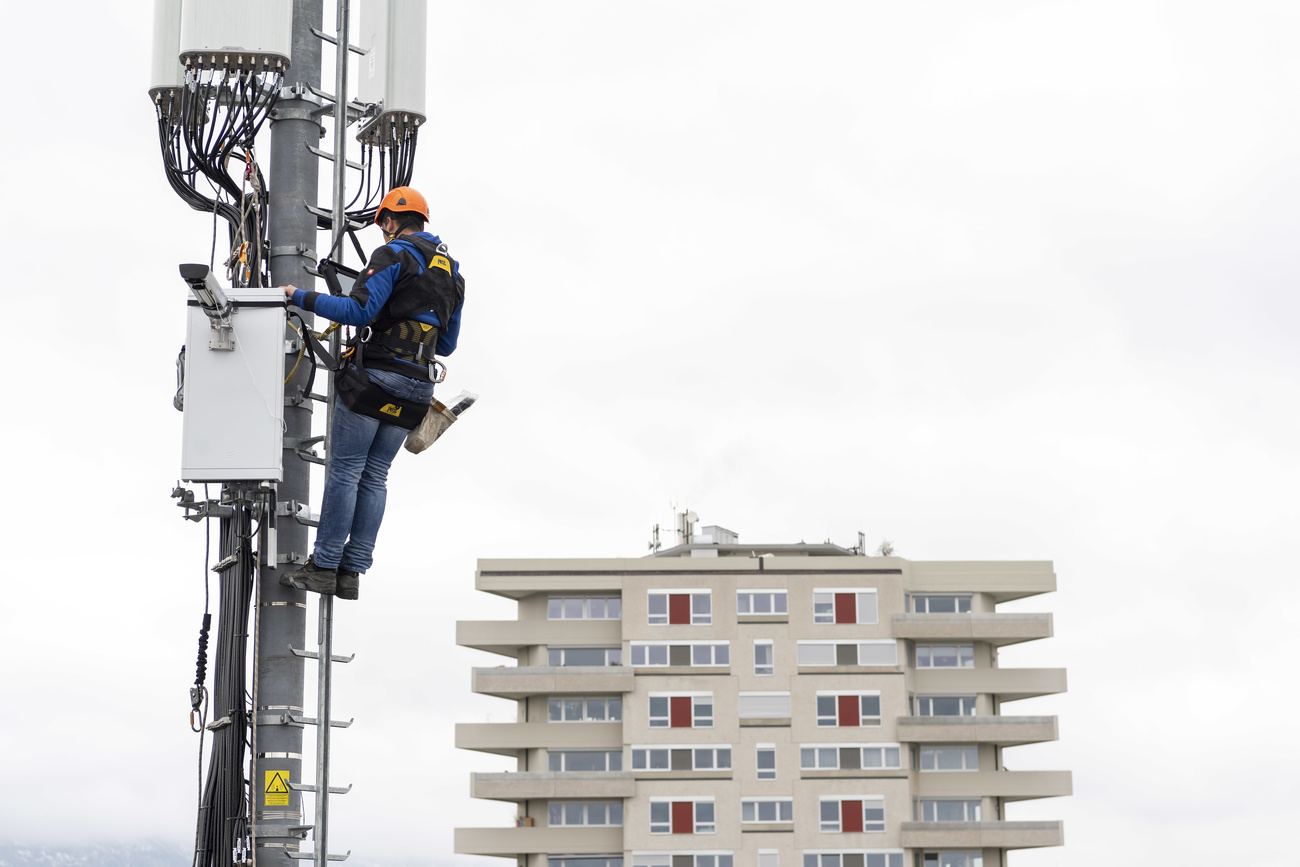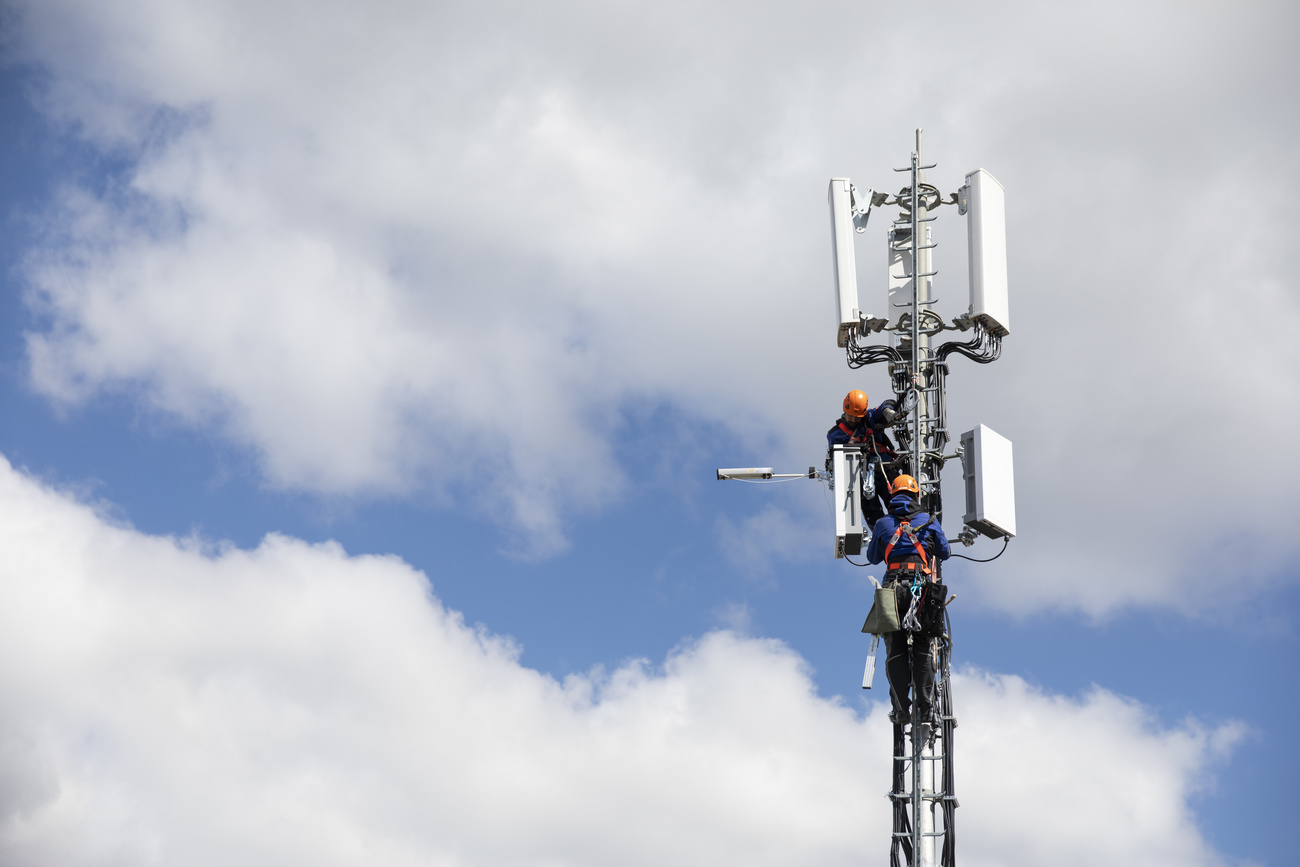
5G is not harmful to health, says government report

In a significant step for the deployment of 5G in Switzerland a federal study has found for the first time that the technology does not have negative health consequences. The radiation from the phones will remain moderate, it says.
The values measured are well below the limit values that are decisive for health effects, according to the reportExternal link produced for the Swiss Federal Office of Energy. They are even lower than when the previous measurements were taken eight years ago. This is due in part to the development of new, less harmful antennas, it says.
However, opponents are not convinced. “This report is not realistic because it doesn’t take into account the changes that were made at the legal level for the new 5G antennas that weren’t operating at full capacity at the time of the measurements,” Olivier Bodenmann, founder of the STOP 5G collective, told Swiss public television, RTSExternal link, on Wednesday.
“What’s more, there were no measurements in schools, few measurements in private spaces and the measurements in public transport were taken outside peak hours.”
In Switzerland more than 3,000 objections at cantonal and municipal level are blocking the rollout of the 5G network.

More
Swiss remain divided over 5G rollout

In compliance with the JTI standards
More: SWI swissinfo.ch certified by the Journalism Trust Initiative






























You can find an overview of ongoing debates with our journalists here . Please join us!
If you want to start a conversation about a topic raised in this article or want to report factual errors, email us at english@swissinfo.ch.